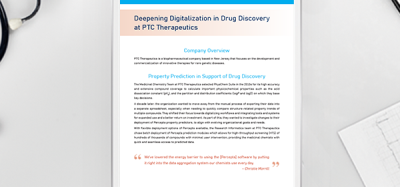EMA seeks public opinion on AI in drug development
Posted: 21 July 2023 | Catherine Eckford (European Pharmaceutical Review) | No comments yet
Public consultation is open for the European Medicines Agency (EMA)’s draft reflection paper on using artificial intelligence (AI) when developing and regulating medicines.


European Medicines Agency (EMA) has published a draft reflection paper on using artificial intelligence (AI) to support the safe and effective development, regulation and use of medicines.
The US Food and Drug Administration (FDA) published its discussion paper on AI in drug development in May 2023, and now European regulators following a similar route to help chart a new course for this emerging technology.
EMA’s paper reflects on the application of AI and machine learning (ML) at any stage within the lifecycle of a medicine, from drug discovery to post-authorisation.
Highlighted in the paper is that a human-centric approach should guide all development and deployment of AI and ML. The use of AI in the medicinal product lifecycle should always occur in compliance with the existing legal requirements, consider ethics and ensure due respect of fundamental rights.
The document is part of the joint Heads of Medicines Agencies (HMA)-EMA Big Data Steering Group (BDSG) initiatives to develop the European Medicines Regulatory Network’s capability in data-driven regulation.
Using artificial intelligence for human medicines
“The use of artificial intelligence is rapidly developing in society and as regulators we see more and more applications in the field of medicines. AI brings exciting opportunities to generate new insights and improve processes. To embrace them fully, we will need to be prepared for the regulatory challenges presented by this quickly evolving ecosystem,” commented Jesper Kjær, Director of the Data Analytics Centre at the Danish Medicines Agency and co-chair of the BDSG.
“With this paper, we are opening a dialogue with developers, academics, and other regulators, to discuss ways forward, ensuring that the full potential of these innovations can be realised,” stated Peter Arlett, EMA’s Head of Data Analytics and Methods, co-chair of the BDSG.
How can AI and ML support development and regulation of medicines?
According to the EMA, AI and ML tools have the potential to effectively support the acquisition, transformation, analysis, and interpretation of data across the medicinal product lifecycle.
These digital tools have potential application in clinical trials, in aiding selection of participants based on certain disease characteristics or other clinical parameters.
AI/ML can also support data recording and analyses for submission to regulators in marketing-authorisation procedures. At the marketing-authorisation stage, AI applications include tools to draft, compile, translate, or review data to be included in the product information of a medicine.
In the post-authorisation phase, these tools can effectively support, for example, pharmacovigilance activities including adverse event report management and signal detection.
EMA noted that this range of applications harbours challenges such as the understanding of the algorithms, the risks of technical failures and the wider impact these would have on AI uptake in medicine development and health.
Therefore, the paper is open for public consultation and interested parties are invited to comment on the draft reflection paper and to identify opportunities and risks of AI in medicines.
Related topics
Artificial Intelligence, Big Pharma, Biopharmaceuticals, Clinical Development, Drug Development, Drug Safety, Industry Insight, Regulation & Legislation, Research & Development (R&D), Technology, Therapeutics
Related organisations
Danish Medicines Agency, European Medicines Agency (EMA), Heads of Medicines Agencies (HMA)









